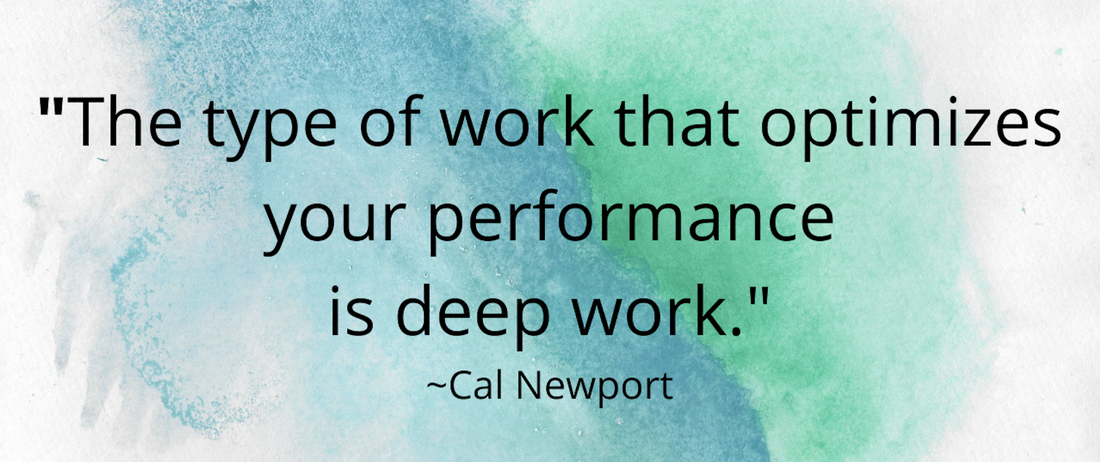|
The evidence is quite clear when it comes to multitasking. By and large, multitasking leads to reduced accuracy and increased errors in whatever tasks are being focused on in the moment. As a result of multitasking, the quality of work being done is greatly diminished.
I would venture a guess that anyone who has multitasked, in the past, has experienced what this is like. Task Jumpers There are some people who understand the negative impact that multitasking has on performance and try to focus their daily work on one task at a time. They dig into a task that needs to be done and try very hard to make whatever it is they are working on their singular focus. In the moment, they are making some gains and then, BOOM! Just like that, they realize that they didn’t send an email they were supposed to send. They switch gears, leave Task A to quickly jump over to Task B. They send that email then return back to Task A. Once the dust settles a bit, they try to get back to the same level of momentum they had with Task A right before they jumped over to do Task B. Does this scenario sound familiar to you? If so, you have probably experienced what it is like to be a task jumper. Dr. Sophie Leroy, a professor at the University of Washington School of Business has specifically focused her work on the study of attention for nearly 20 years. The main question that guides her research is: What allows us to have focused attention and what makes it so hard to do so in today’s world of interruptions, distractions, decentralized decision making and information overload? For nearly two decades, she has studied the brain and how humans deal with having to constantly switch focus from one task to another. As a result of her research, she coined the term ‘Attention Residue’. In Dr. Leroy’s own words, she says: “Attention residue easily occurs when we leave tasks unfinished, when we get interrupted, or when we anticipate that once we have a chance to get to the unfinished or pending work, we will have to rush to get it done. Our brain finds it hard to let go of these tasks, and instead keeps them active in the back of our mind, even when we are trying to focus on and perform other tasks.” She also refers to this as a ‘grazing approach to getting work done’ and that this way of working creates a build up of ‘attention residue’. A person can literally leave 10-20% of their attention on a previous task at a subconscious level. They may feel like they are fully present and engaged in the original task once they come back to it. In reality though, they are distracted and unable to focus, as clearly as they need to, in order to complete their work with clarity and precision. There are several strategies that can help a person overcome the need to be a task jumper and I will focus on some of these strategies in future blog posts. For today though, I will share one thing for you to consider when you think about your own performance. To what extent do you block off uninterrupted time in your daily calendar to do deeper work? By blocking off uninterrupted time to do deeper work, we train ourselves to ‘follow through’ on tasks and build up our tolerance to avoid unnecessary distractions that get in the way of completing important work. Of course, this is not always possible as some interruptions are unavoidable. But, when we learn to block off sacred time to get important work done and challenge ourselves to stick with the task at hand, it can have a very positive impact on our performance. More to follow in tomorrow's blog post. As always, thanks for reading and sharing with anyone who may benefit from these daily posts.
0 Comments
Leave a Reply. |
AuthorKAUST Faculty, Pedagogical Coach. Presenter & Workshop Leader.IB Educator. #RunYourLife podcast host. Archives
September 2022
|
- Welcome
- All Things Teaching and Learning
- The Aligned Leader Blog
- Consulting and Coaching Opportunities
- My TED X Talk
- My Leadership Blog
- Run Your Life Podcast Series
- How PYP PE with Andy Has Helped Others
- Good Teaching is L.I.F.E
- The Sportfolio
- Example Assessment Tasks
- PYP Attitude Posters (printable)
- Publications

 RSS Feed
RSS Feed
